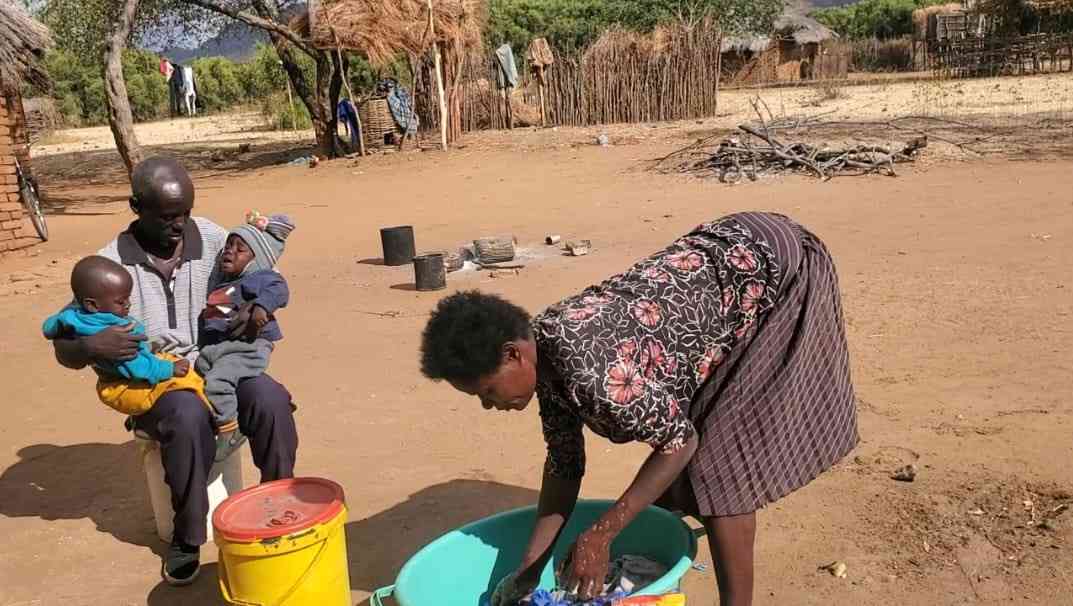
IRENE Chifunda (40) of Mandaza village, Mbire district in Mashonaland Central province, confesses she was a person of violent disposition.
When her name did not appear on the list of beneficiaries for food aid or other freebies, Chifunda would go ballistic and cause havoc.
She used violence to vent her frustrations and disappointments especially towards her unemployed husband Felix Majaya.
“I would beat my husband to vent my frustration on the economic hardships we faced,” Chifunda said.
“I expected my husband to provide for me and the kids so when he failed I got angry and I would beat him up.
“I felt better when I attacked either verbally or physically those who wronged me.”
Chifunda is now a changed character.
Chifunda went for training under the Spotlight Initiative, a European Union (EU)-funded programme implemented by the United Nations (UN) Women and other partners to eliminate violence against women and girls.
- Ngozi Mine’s young mothers suffering in silence
- CCC urged to push for dialogue over reforms
- Ngozi Mine’s young mothers suffering in silence
- Japan, EU in lukewarm response to Zimbabwe’s lobby to lift ivory ban trade
Keep Reading
Spotlight Initiative, the world’s largest targeted effort to end all forms of violence against women and girls, was launched with a budget of about $652 million from the EU to promote gender equality.
The Spotlight Initiative is responding to all forms of violence against women and girls, with a particular focus on domestic violence, sexual and gender-based violence and harmful practices.
Zimbabwe is one of the 22 countries globally, and eight in Africa that have benefitted from this programme with a funding commitment of US$30 million from the EU.
The programme, which ends this year, was implemented in five provinces which are Harare, Bulawayo, Mashonaland West, Mashonaland Central and Manicaland.
In Mashonaland Central province, the initiative was implemented through the Lower Guruve Development Association (LGDA), by training and providing start-ups for women to be self-reliant and curb misunderstandings over finances within families.
“I appreciate the education that I received from Spotlight Initiative because I am now a mother to a happy family,” Chifunda said.
“Not only am I able to show affection to my husband, but I also fend for our family.
“I was taught how to contribute to family earnings through projects such as gardening. With all my focus on how to generate more money, I no longer have time to cause problems in the neighbourhood.”
In Hurungwe district, Mashonaland West province, the Spotlight Initiative was implemented through Caritas, a community-based organisation.
Caritas trained women and men on the dangers of GBV, whom it later provided with bicycles for them to reach out to victims in remote areas.
A beneficiary to the GBV campaign, Perpetua Nziramasanga of ward 5 in Hurungwe district believes the Spotlight Initiative programme will save her fourth marriage.
Her previous marriages failed because of her violent disposition.
“I did not respect my husbands,” Nziramasanga said.
“In fact I did not care about my marriage. I wanted to be like a man and would often fight with them.
“Just like the previous three, I knew my current husband would leave me.
“But not anymore, after the Spotlight Initiative training. I am now a changed person after a rigorous training on the effects of GBV in communities. I am also proud to be gender ambassador, where I can now educate others on the dangers of GBV.”
Whilst women can also be perpetrators of GBV, research has shown that men tend to be more prevalent offenders.
A recent report released by the United Nations Development Programme (UNDP) titled Gender Social Norms Index, shows that 25% of people believe that a man beating his wife is justifiable.
Using data from the international research programme World Values Survey (WVS) collected between 2010-2014 and 2017–2022 from 80 countries and territories, the findings show that there was no improvement in biases against women in a decade despite global and local campaigns for women’s rights.
With two wives, Cluster Mahembe of Chitsiga village, ward 15 in Mbire district believed that total control over his wives was a portrayal of masculinity.
The Spotlight Initiative programmes came just in time to save his polygamous marriage as his two wives were on the verge of dumping him.
“I had countless girlfriends,” Mahembe told NewsDay Weekender.
“For me, the multi-sexual affairs were a sign of virility. I didn’t want any of my wives to question me about my whereabouts. I would beat them, if they dared. I earned a reasonable salary but I would squander it with my extra-marital lovers.
“I had no time to sit down with my wives to plan for our future. But my life changed completely after joining the Men’s Forum, a Spotlight Initiative programme to educate men against GBV.
"I never believed that I would be a gender champion, where men would sit down and listen to me as I rebuked perpetrators of violence to them."
After years of neglecting his family and lack of affection in his marriages, it was a mammoth task for Mahembe to convince the community that he was a transformed man.
“When I started talking about the problems of beating wives, fellow men thought I had been bewitched by one of my wives because being submissive to women was considered culturally unacceptable,” Mahembe said.
“At one time I was a laughing stock among fellow men in the village, but through consistency, many now believe.”
In the UNDP Gender Social Norms Index report, head of the UNDP’s Human Development Report Office, Pedro Conceicao said: “Social norms that impair women’s rights are detrimental to society more broadly, dampening the expansion of human development. Lack of progress on gender social norms is unfolding against a human development crisis.”









